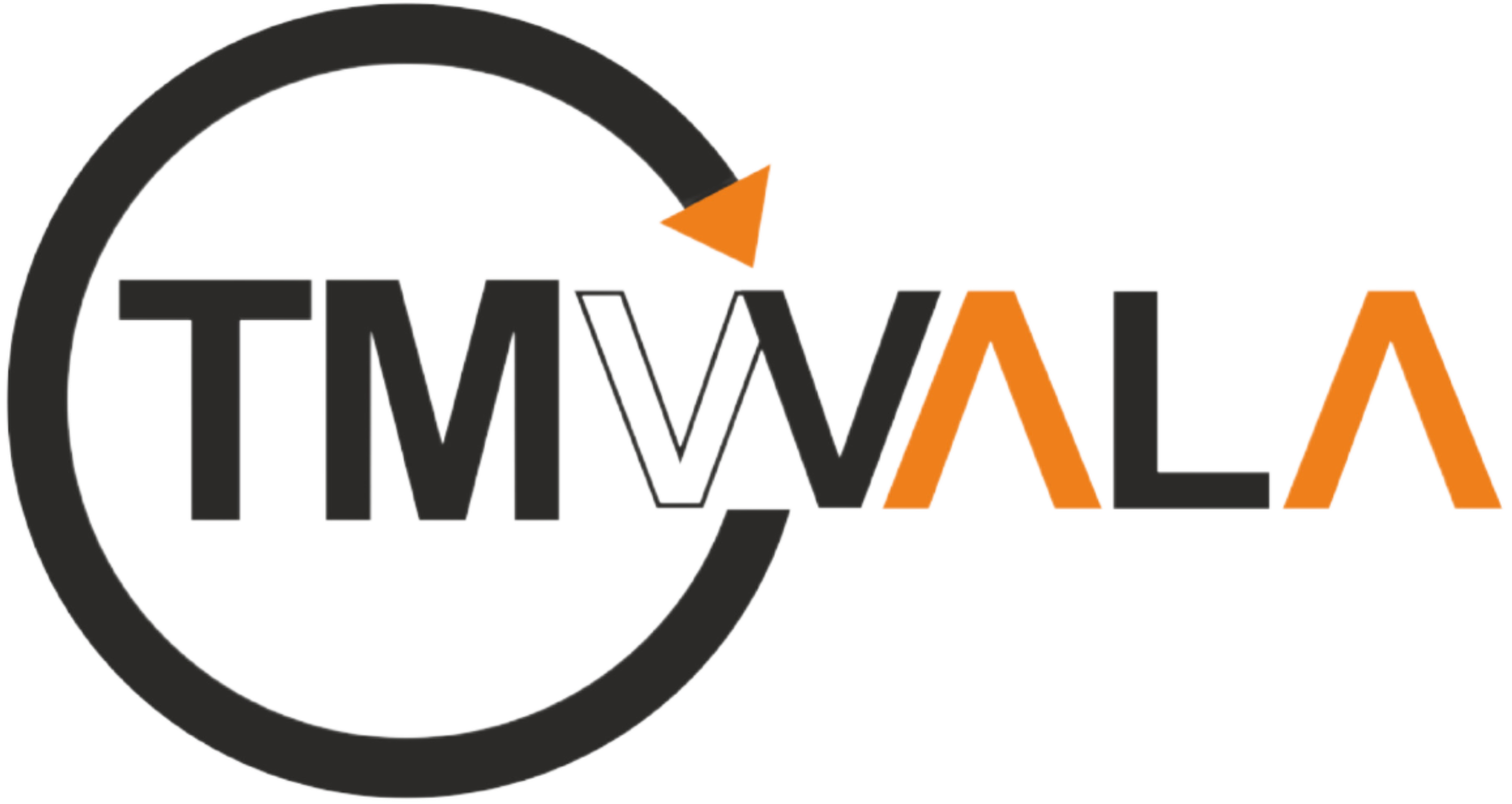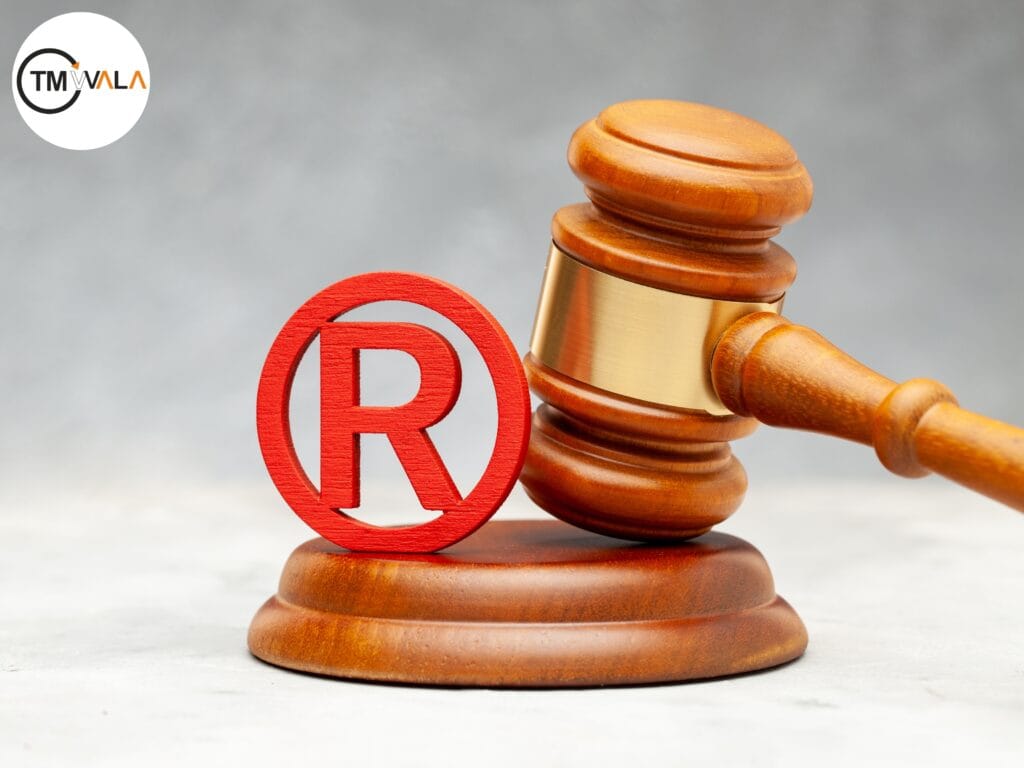Before learning about trademark registration in India, let’s first learn a little about trademarks. A trademark is a visual symbol, word, or phrase that represents and sets apart the origin of goods or services of one party from those of others in the marketplace. It essentially acts as a form of protection for intellectual property, granting the owner exclusive rights to utilize the mark and prohibiting others from using a similar mark that could potentially lead to consumer confusion.
Section 2 (b) of the Trademark Act, 1999, provides a comprehensive definition of a trademark, stating that it must be capable of being graphically represented and have the ability to distinguish the goods or services of one person from those of others. Additionally, it may encompass the shape of goods, their packaging, and a combination of colours.
Types Of Trademarks:
- Word Marks: Trademarks composed of words, letters, or numerals, such as brand names or slogans. Examples: Google, Calvin Klein, eBay, FedEx, etc.
- Logo/Device Marks: Trademarks consisting of unique and recognizable graphical elements or symbols. Ex: The artistic work of a half-bitten apple as the logo of the Tech company Apple. inc.

Logo/ Device mark of Apple Inc.

Logo/ Device mark of Starbucks
- Combination Marks: Trademarks that incorporate both words and logos, creating a unified brand representation.

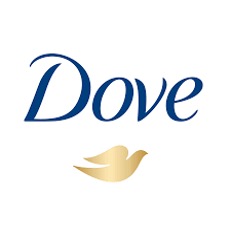
Example of Combination Marks
- Shape of Goods Marks: Trademarks that protect the three-dimensional shape of a product or its packaging. Ex: The unique shape of a Pepsi glass bottle, etc.

Shape of Goods Mark of Pepsi. Ref: TMA No. 2654087
- Colour Marks: Trademarks that protect specific colours or colour combinations used distinctively. Examples: Coca-Cola Red, Tiffany Blue, Cadbury Purple, etc.

- Certification Marks: Certification marks are used to certify the quality, origin, or other characteristics of goods or services, often administered by a certifying authority or organization.

Example of Collective Mark
- Collective Marks: Collective Marks are used to distinguish a collection of people from someone else. These are often used by organisations or associations of professionals, such as Chartered Accountants, to distinguish themselves from others.
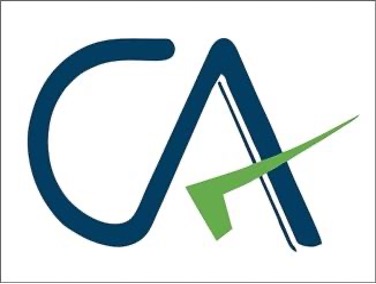
Example of Collective Mark
- Non-conventional Marks: Apart from the foregoing, there are certain other unconventional trademarks, including but not limited to Sound Marks, Smell Marks, Hologram Mark, Motion Mark, Taste Marks, Trade Dress, etc.
*While Service Marks are often considered as a different type of trademark that is exclusively used concerning services, it is imperative to note that a Trademark and a Servicemark are the same thing. A Trademark, by default, includes all the service marks, and no statute differentiates between a Trademark and a Service Mark*
Importance of Trademark:
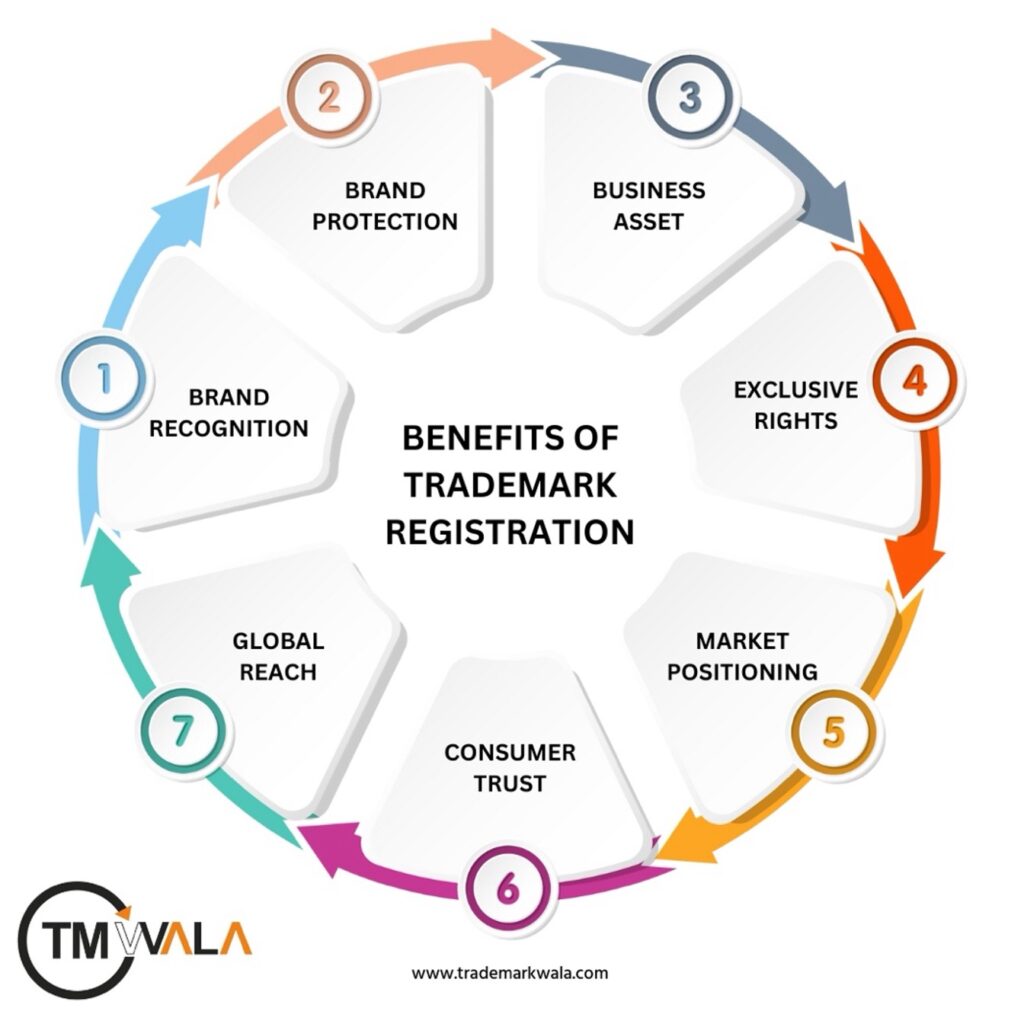
- Brand Recognition: Trademarks help consumers identify and distinguish products or services from different companies, fostering brand loyalty and consumer trust.
- Protection: Trademarks provide legal protection against unauthorized use of similar marks by competitors, preventing consumer confusion and safeguarding the reputation of the brand.
- Business Asset: Trademarks can be appreciated over time as the brand becomes more established and recognized in the market, contributing to the overall value of the business.
- Exclusive Rights: Trademark owners have the exclusive right to use the mark on their goods or services, granting them a competitive advantage in the marketplace.
- Market Positioning: A strong trademark can differentiate a company’s offerings from competitors, helping to position the brand uniquely in the minds of consumers.
- Consumer Trust: Trademark registration enhances consumer trust by signalling the authenticity and consistent quality of a brand’s products or services.
- Global Protection: Trademarks can be protected internationally through treaties and agreements, allowing businesses to expand their market reach while maintaining brand integrity.
Trademark Registration Process

- TM Search Report: Initially, the applicant must conduct a comprehensive trademark search to ensure the uniqueness and distinctiveness of the proposed trademark. This step is vital to prevent potential litigation and save the applicant’s time. To perform this search, visit the official website for trademark registration in India https://ipindiaservices.gov.in.
- Filing of Trademark Application: All necessary documents are submitted through the IP India Official Website. The applicant can now use the symbol TM alongside their logo or brand name. The application can be processed either online or offline. Information and Documents required while filing a trademark application:
- Applicant details: Name, address, nationality, and legal status (individual, company, partnership, etc.).
- Trademark details: The trademark itself (wordmark, logo, slogan, or combination), description if it includes non-English characters, and usage since date (if applicable).
- Goods/Services description: Specification of goods/services covered by the trademark, classified according to the Nice Classification.
- Power of Attorney: Required if filing through an attorney or agent.
- Priority claim: Details of claiming priority from an earlier application filed in a convention country (if applicable).
- Legal entity details: Date of incorporation, place of incorporation for companies or partnerships, etc.
- Address for service: Indian address for correspondence regarding the trademark application.
- User affidavit: If the applicant claims prior use of the Trademark.
- Formalities Check: After the completion of the foregoing steps, trademarks proceed to the stage of formality check, wherein the trademark application, along with the accompanying documents, undergoes a thorough screening process. If any procedural discrepancy is found, a formality check report is issued, which ought to be complied with within one month by removing the requisite discrepancies.
- Trademark Examination: A Trademark Officer reviews the trademark application for its correctness and issues a trademark examination report if any discrepancies are found. The examination covers mainly a few aspects, such as distinctiveness, descriptiveness, and similarity to prior trademarks. To be eligible for registration, the trademark must be distinctive, non-descriptive, and free of similarity to existing trademarks. If the application violates Section 9 or 11 of the Trademark Act, 1999, the Trademark Officer issues an Examination Report with objections and lists similar brands within the same class.
- Reply to Examination Report: The applicant or their appointed agent must respond to the examiner’s objections within one month of receiving the Examination Report. Failure to respond within this timeframe may result in the abandonment of the application. If the trademark office finds the request compliant with all necessary provisions, the mark is accepted.
- Show Cause Hearing: If the reply to the examination report is unsatisfactory, the applicant has the right to attend a hearing. During this hearing, the Examiner may accept, refuse, or conditionally accept the application. If the application is accepted with conditions, the applicant is given one month to fulfil these conditions. Only when the conditions are met is the trademark published. The applicant can also appeal the decision.
- Trademark Publication: If the application is accepted, the proposed mark is published in the trademark journal for 4 months. During this time, anyone can oppose the trademark application. If no opposition is received within the specified period, the trademark is considered registered.
- Withdrawal of Acceptance: The registrar can withdraw acceptance of the application after hearing the applicant under Section 19 of the Trade Marks Act, 1999. This typically occurs before trademark registration.
- Trademark Opposition: According to Section 21 of the Trademarks Act, 1999, any person has a 4-month window from the date of trademark advertisement in the TM Journal to file an opposition.
- Counterstatement and Stages of Evidence: Following the notice of opposition, the next stage involves filing a counterstatement and presenting Evidence in support of Opposition under Rule 45(1), Evidence in Support of Application under rule 46(1), Further Evidence in Reply by the Opponent under Rule 47 along with any additional Evidence under rule 48 of the TM Rules, 2017.
- Hearing with Third-party (IF ANY): After completing all evidence stages, a hearing is scheduled with the Trademark Hearing Officer to decide the maintainability of the opposition.
- Trademark Registration: If there are no oppositions or if any oppositions are set aside, the Trademark Registration Certificate is issued, and the symbol ® can be used alongside the logo or brand name.
- Trademark Renewal: Trademarks are initially valid for 10 years. After this period, they can be renewed.
Advantages of Trademark Registration
1. Exclusive Rights: Registering a trademark gives the owner the exclusive rights to use the mark with the specified goods or services. It also provides a legal presumption of ownership and validity, helping defend against potential infringers.
2. Protection Against Infringement: Registered trademarks receive legal protection, allowing the owner to take legal action against unauthorized use or infringement.
3. Brand Recognition and Goodwill: A registered trademark enhances brand recognition and consumer trust, contributing to the business’s goodwill and reputation.
4. Licensing and Monetization: Registered trademarks can be licensed or franchised, creating opportunities for generating revenue and expanding the business.
5. National and International Protection: A registered trademark protects India and can serve as a basis for securing protection in other countries through the Madrid Protocol.
In conclusion, following the above process ensures statutory protection for the trademark. While it’s not mandatory, it is highly recommended to consult with a trademark attorney or agent who can guide you through the process, conduct searches, and ensure your application complies with the law.
Documents Needed for Trademark Registration
The documents required for trademark registration depend on the applicant type and business entity’s nature. Here’s a comprehensive list of the necessary documents:
For Individuals
- PAN card (Permanent Account Number)
- Aadhar Card
For Proprietorship
- GST Certificate
- PAN Card
- Aadhar Card
For Companies
- Incorporation certificate
- Company PAN Card
- MSME (Micro, small, and medium enterprises) registration certificate (if applicable)
- Logo (if applicable)
For Partnership Firms
- Partnership deed
- Partnership PAN Card
- MSME Certificate (if applicable)
- Logo (if applicable)
For Limited Liability Partnerships (LLPs)
- LLP Deed
- Incorporation Certificate
- LLP PAN card
- Logo (if applicable)
For Trusts
- Trust Deed
- Trust PAN Card
- Logo (if applicable)
How Can We Help?
We at “TMWALA” are your dependable trademark registration partner. We are here to protect the identity and legal standing of your brand, from comprehensive searches to professional application submission and strategic advice through objections and oppositions. You’re in competent hands with us at every turn.
If you wish to know more about trademark registration, click the link: https://tmwala.com/blog-trademark-registration/
Link to the official website of the Trade Marks Registry: https://www.ipindia.gov.in
FAQs
1. Can I register a trademark if my business is not yet operational?
Yes, you can file a trademark application on a proposed-to-be-used basis, even if your business hasn’t started operations yet.
2. Is it mandatory to register a trademark in India?
Trademark registration is not mandatory, but it is highly recommended for legal protection and brand exclusivity.
3. What is the cost of trademark registration in India?
Government fees start at ₹4,500 for individuals/startups/MSMEs and ₹9,000 for companies, excluding professional service charges.
4. Can foreign entities register a trademark in India?
Yes, foreign applicants can register trademarks in India, either directly or via a local trademark attorney.
5. Can a single trademark cover multiple product categories?
No, each class of goods/services requires a separate trademark application, though you can file them simultaneously.
6. What is a well-known trademark in India?
A well-known trademark is recognized by the public at large and enjoys protection even without registration in unrelated categories.
7. Can I modify my trademark after filing an application?
Only minor changes that don’t affect the mark’s identity are allowed; otherwise, you’ll need to file a new application.
8. Can I transfer ownership of a trademark?
Yes, trademarks can be assigned or licensed to others, either fully or partially, for specific goods or services.
9. What is trademark dilution?
Trademark dilution occurs when a famous trademark’s uniqueness is weakened by unrelated use, even without consumer confusion.
10. What happens if I don’t renew my trademark on time?
If you fail to renew within 10 years, your trademark will be removed from the registry, but you have a grace period of 6 months to restore it.
11. Can I claim common law rights without registration?
Yes, unregistered trademarks may be protected under common law through passing off actions, but it’s harder to enforce.
12. How long does the entire registration process take?
If there are no objections or oppositions, the process typically takes 12-18 months; with objections, it may take longer.
